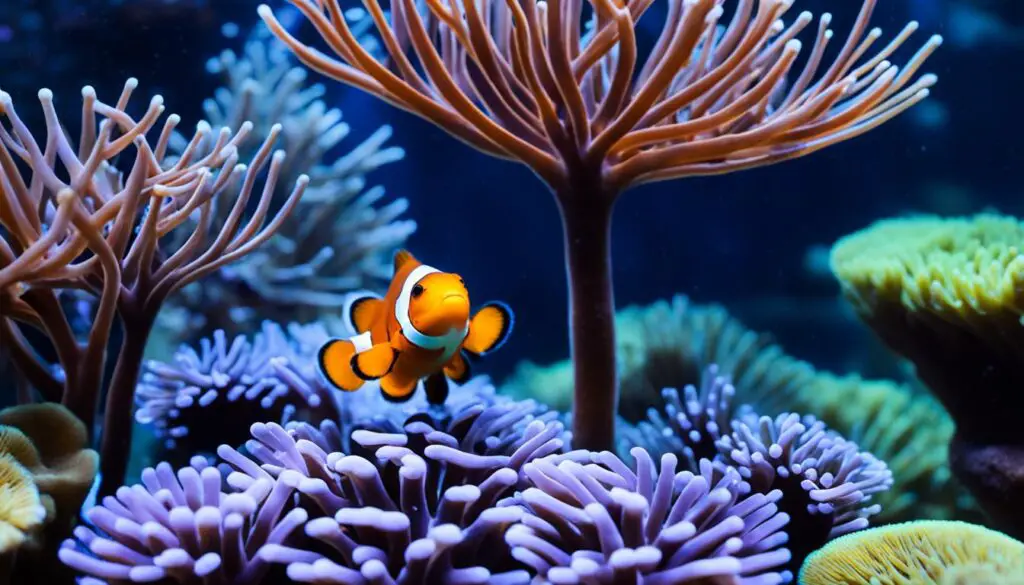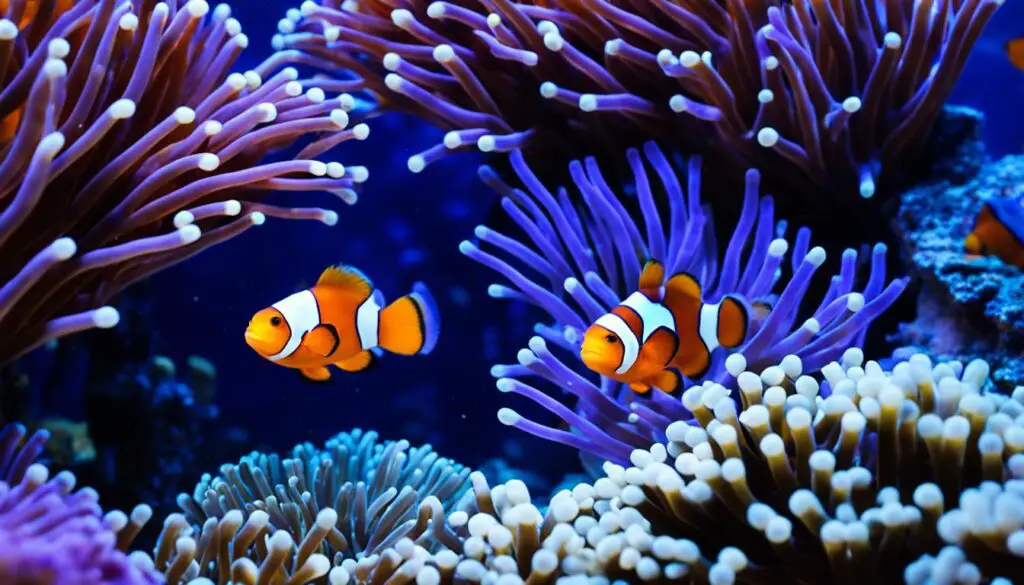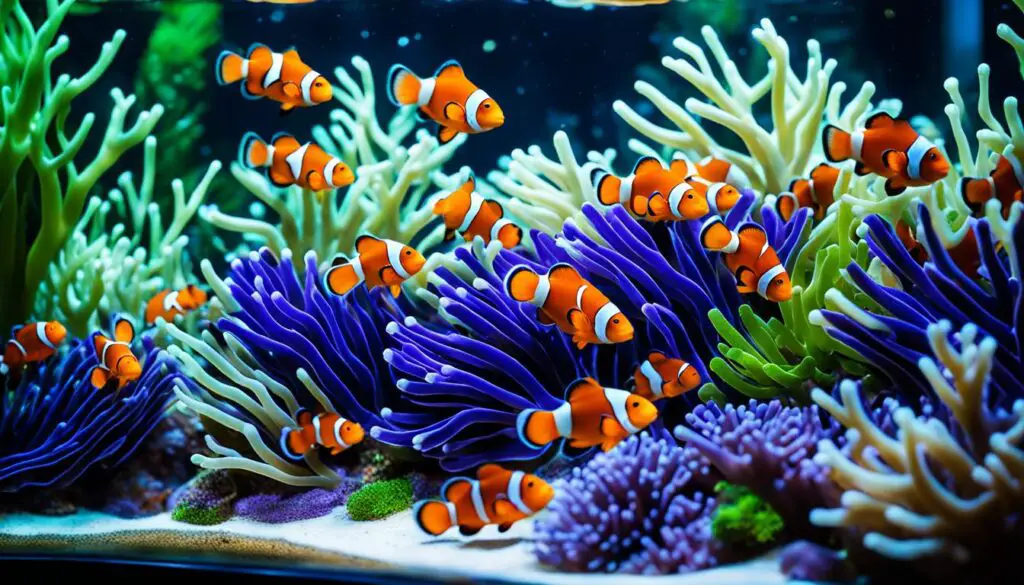Clownfish Tank Environmental Education: Spreading Awareness
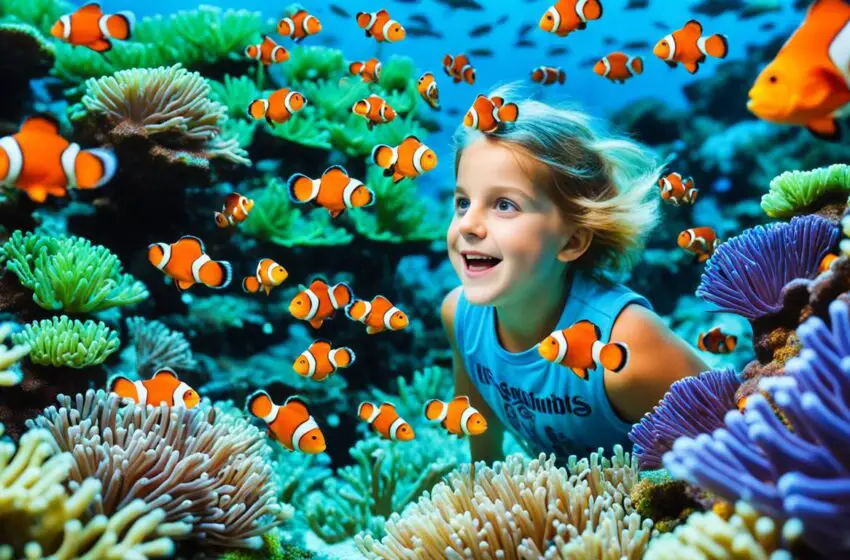
Aquariums are key in educating people about the ocean’s importance and the dangers it faces. They offer one-of-a-kind learning opportunities for kids that boost critical thinking and problem-solving. These include touchpools, feeding shows, and educational displays.
They help visitors dive into the world of marine life. This creates a bond with the ocean, making people cherish its beauty and variety more. Such visits make people see why protecting our oceans is vital, urging them to help.
Aquariums also work hard for marine life in different ways. They do research to better understand marine systems, help injured animals get back on their feet, and run programs to teach about eco-friendly habits. These efforts are crucial in inspiring future marine experts, eco warriors, and caring individuals.
Key Takeaways:
- Clownfish tank environmental education raises awareness about marine conservation.
- Aquariums provide unique learning experiences for young minds, promoting critical thinking skills.
- They contribute to marine conservation efforts through research, rehabilitation, and education.
- Aquariums engage visitors and create emotional connections to the ocean.
- By protecting marine environments, we ensure the survival of clownfish and other marine species.
The Impact of Climate Change on Clownfish and Coral Reefs
Climate change is a big problem for clownfish and coral reefs. Rising global temperatures cause coral bleaching. This leads to less space and more dangers for clownfish.
This situation makes the already bad coral reef problem worse. Less healthy reefs mean life is harder for both the fish and the reefs themselves.
Coral reefs are vital for clownfish. They offer shelter, food, and a home in the anemones. But with warmer water, this connection breaks down. It’s harder for the fish to find good spots, especially in the shallower parts of the ocean.
As habitats disappear, clownfish face greater risks. Without healthy corals, they lose safe spots, food, and a balanced ecosystem. Coral bleaching, a big effect of climate change, makes things even worse. The reefs aren’t as welcoming for fish and other sea life.
Clownfish can’t change to match the changing climate very well. They’re not good at handling big shifts. This, along with fishing and losing their homes, puts them in a tight spot.
Strong efforts to protect our seas are key. Saving the reefs, being responsible, and aiding in conservation matter a lot. These steps help fight the bad effects of climate change on clownfish and their homes.
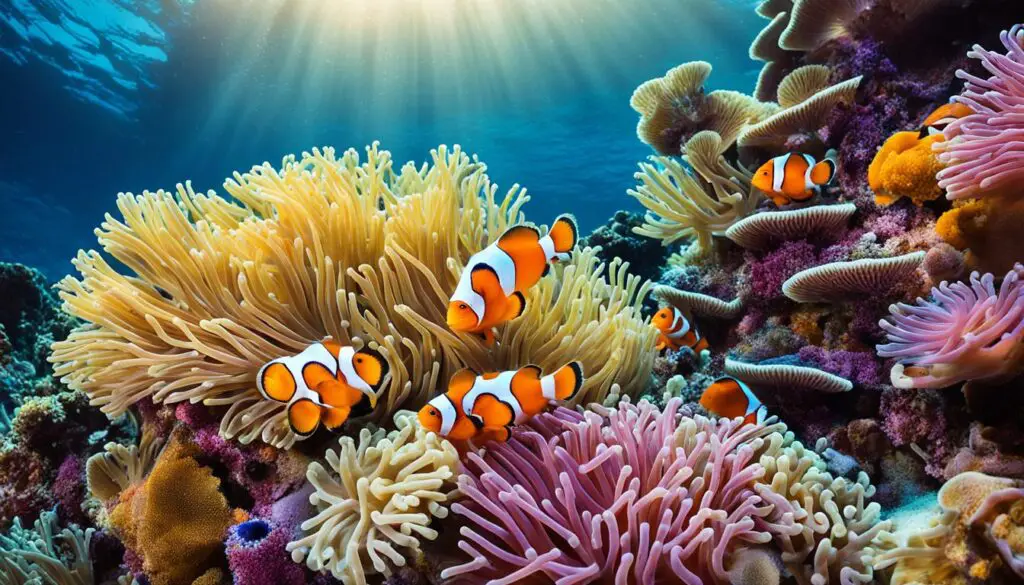
Acting against climate change will help the fish and the world they live in. We must all learn about why reefs matter and how we can help. Working together, we can do a lot for clownfish and keep our oceans rich in life.
The Importance of Anemone and Genetic Limitations for Clownfish Adaptation
Clownfish rely on anemones for their safety and food. These sea creatures find everything they need in anemones. They get shelter, avoid being eaten, and even find food.
But, problems like coral reefs getting worse harm anemones. Parts of the ocean where anemones live are disappearing. This change makes life hard for clownfish.
Clownfish don’t easily change to new living conditions. They are picky about the anemones they live in. So, when their usual anemones are gone, adapting is tough for them.
Caring for coral reefs is key to helping clownfish survive. If we protect their homes and the anemones they need, they stand a better chance. Let’s work to keep these sea creatures and their homes safe.
FAQ
What is the role of aquariums in marine conservation?
Aquariums are crucial for teaching people about the sea’s significance and its dangers. They also help in saving sea life by doing research and rehab, and backing green actions. They support groups that protect nature too.
What are the benefits of aquarium education for students?
Studying in aquariums gives kids fun ways to learn and think. They get to know more about ocean creatures and why the sea is important. Plus, they start wanting to help save our oceans.
How does climate change threaten clownfish populations?
Global warming and coral bleaching hurt clownfish homes, the coral reefs. This makes life hard for them, risking their future and even survival. Climate change is a big danger to clownfish.
Why is the clownfish-anemone relationship important?
Clownfish and anemones need each other to live well. Anemones keep clownfish safe and give them food. But with climate change damaging their home, this relationship is in danger too.

